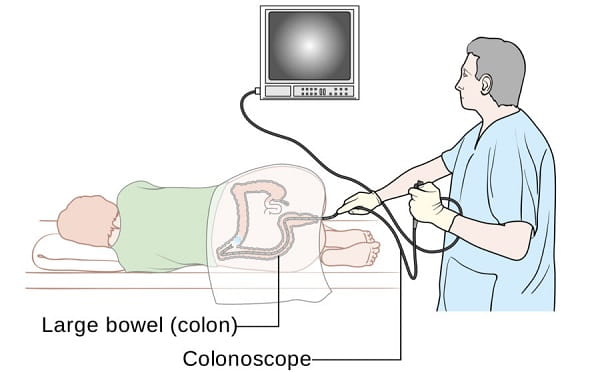A colonoscopy is a medical procedure to examine the inner lining of your large intestine (colon) and rectum. It involves using a long, flexible tube with a camera at the end, called a colonoscope, to look for abnormalities such as polyps, tumors, inflammation, or bleeding.
When visiting a colon specialist clinic in Singapore, a colonoscopy may be recommended for colorectal cancer screening—especially if you're at risk to try and detect the disease at an early stage when it is most treatable.
On this page, you will learn when you may need a colonoscopy. Also, you will learn the different roles of colon specialists and family doctors and who to choose for your colonoscopy in Singapore. Keep reading!

Whether you're visiting a colon specialist in Singapore or a family doctor, a colonoscopy allows for a careful examination of the interior of the colon and rectum. Used correctly, it can help detect inflamed tissue, ulcers, and abnormal growths like polyps thus the question; who needs a colonoscopy?
Colonoscopies are recommended for adults starting at age 45. However, the starting age may be earlier for those with higher risk factors. High-risk factors include a personal or family history of colorectal cancer, certain genetic syndromes, inflammatory bowel disease (IBD), and a history of polyps.
For those at risk, regular visits to a colon specialist in Singapore may be recommended to help with early detection and also to prevent colorectal cancer and other gastrointestinal issues.
To begin with, a colon specialist in Singapore, or gastroenterologist, is a doctor with specialized education and training in gastrointestinal (GI) health. After completing medical school, gastroenterologists undergo several years of additional training focused specifically on the digestive system.
This extensive training includes the diagnosis and treatment of conditions that affect the esophagus, stomach, intestines, liver, pancreas, and gallbladder. Choosing a colon specialist for your colonoscopy offers several benefits including:
A family doctor or primary care physician (PCP) on the other hand, is trained to provide comprehensive healthcare across all age groups. Their training includes a broad focus on preventive care, chronic disease management, and routine screenings.
While they do not specialize in GI health, family doctors are skilled in identifying when a specialist's care is necessary. They also coordinate overall health management. Opting for a family doctor for your colonoscopy offers several advantages including:
So which specialist should you choose for your colonoscopy? You should choose a colon specialist in Singapore for your colonoscopy if:
Conversely, you should choose a family doctor for your colonoscopy if:
Your decision should also take into account your personal medical history. If you have existing GI conditions, previous abnormal colonoscopy results, or a strong family history of colorectal cancer, a colon specialist's expertise may be necessary.
Also, consider the availability and accessibility of providers in your area. Not to forget, be sure to check your insurance coverage and cost considerations as well, considering that some plans may favor one type of provider over another.
Personal comfort and trust in your healthcare provider are equally crucial. Choose a provider with whom you feel comfortable discussing sensitive health issues and who you trust to perform the procedure with care and expertise.
Choosing between a colon specialist in Singapore and a family doctor for your routine colonoscopies depends on several key factors. Colon specialists offer advanced expertise for high-risk patients and complex cases, while family doctors provide comprehensive care and continuity for average-risk individuals. Take your time to assess your risk factors and what exactly you're looking for to make the best choice for your needs.
Do you feel an inclination towards a colon specialist in Singapore and you're ready to take control of your health? Schedule a colonoscopy with our specialist today to help you keep a keen eye on your colon health. See details below;
Gastrohealth Clinic @ Gleneagles - Dr Bhavesh Doshi | Gastroscopy | Colonoscopy | Health Screening | EUS and ERCP Singapore
6A Napier Rd, #05-35C Gleneagles Hospital Annexe Block,
Singapore 258500
+65 6355 5773
https://gastrohealth.com.sg/